

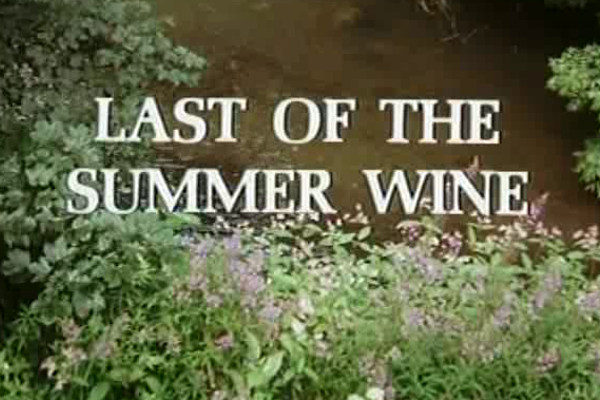
Featuring an increase in physical humour, the DVD of the series can be ordered online from Amazon. In the meantime, please join me as I rank the episodes from worst to best...
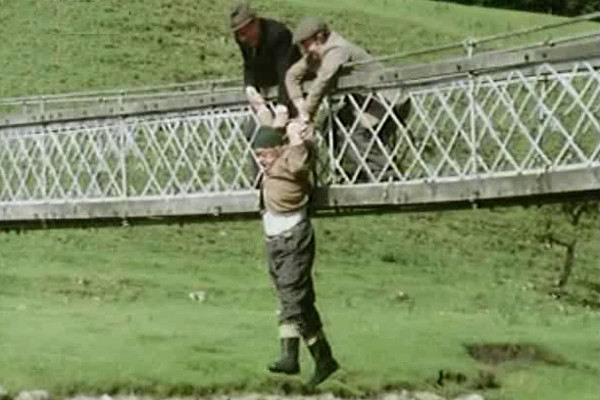
Season Two's most tedious episode sees the group inherit a canoe, leading to a series of adventures that involve Compo in a lake, the three of them in victorian swimming costumes, and wandering through the streets covered in leaves. Although series two perhaps never fully spills over into the slapstick of later years, there's plenty of broad, over-the-top humour that steers far from its more dialogue-based origins.
The person who bestows the canoe upon them is failed canoeist Arnpepper, played by John F. Landry. The same year Landry would appear as "Turtle", a thief in five episodes of the series The Hanged Man. Although largely forgotten today, the character must have been sufficiently popular, as in 1979/1980 he starred in his own spin-off, Turtle's Progress.
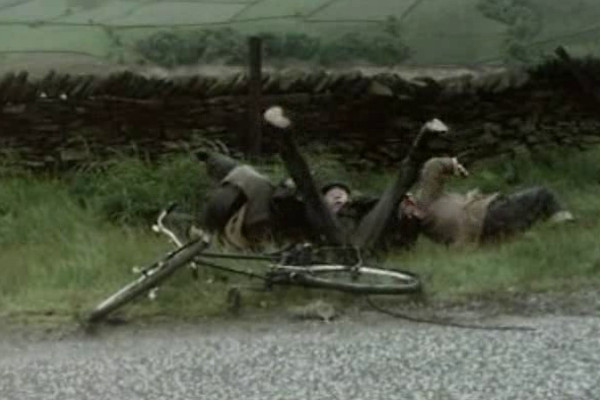
The series opener, whereby the show can still be so light on plot that an entire episode can be based around Clegg hurting his testicles on his bike. However, the decision to make the series a stunt-oriented one has always been somewhat strange. Not only does it undermine the entire premise of the show, but none of the stars are clearly much good at performing stunts.
This shouldn't be taken as a slight against the actors - Michael Bates had been diagnosed with the cancer that led to him leaving the series, and Bill Owen had just entered his sixties. Expecting three elderly character actors to perform dangerous stunts each week was not something that could realistically be expected. So it is that by series five stuntman Stuart Fell was very obviously doubling for the leads, and "Compo" was up to such outlandish stunts as handgliding while dressed as a giant pigeon. The events depicted here are far, far tamer, but the "fall from a speeding bike" captured here is poorly performed, and an unlikely inspiration for 35 years of the show running itself into the ground. This is not, of course, to suggest that the "stunt era" of the programme wasn't commercially popular, and, indeed, after achieiving modest viewing figures for its first series, it went on to become a huge ratings success, with this particular episode reputedly earning over 18 million viewers.
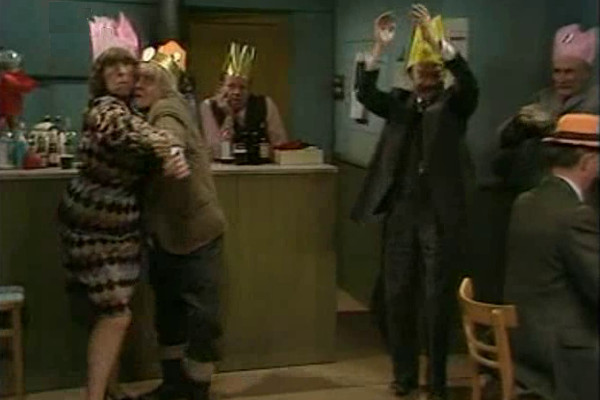
Far away from later eras where the entire town would gather round each others' houses, here a leaving party for a neighbour is put on at Sid's Cafe, and the three men, united by their loneliness, decide to attend. Compo's seedy nature is, unfortunately, ramped up in this series, as we're supposed to find him putting his head on Ivy's breasts or looking up Nora Batty's skirt somehow charming. The ending, which sees him accidentally stamp on Nora's feet during a tango, does feel a bit "tagged on", and a way to end an episode without a natural conclusion, though we should at least be grateful that the trio taking a piano down a hill doesn't result in the expected.
The series is notable for introducing broader, less realistic characters as guest "turns", and here Jack Woolgar appears as a somewhat over-the-top lollipop man who hates children. More striking is their reaction to Compo's emigrating neighbour, Gloria. After she cries in sorrow, they decide not to comfort her, but instead leave her to her tears alone.
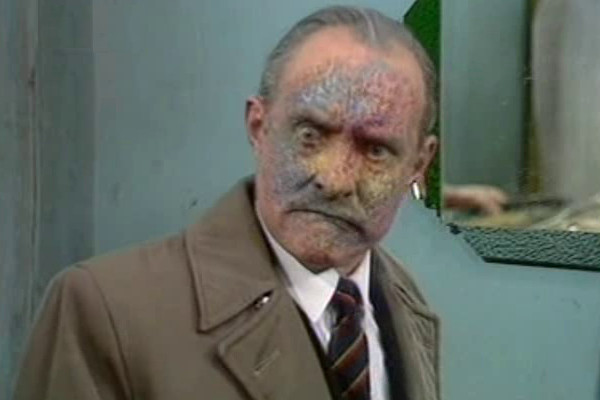
Almost an undermining of the series' basic tenet, as Blamire reveals that he's not actually happy in his early, enforced retirement and insists they all get jobs. Said "job" involves much broader humour than previously seen, including "large" performances from guest stars, and an airspray that causes its buyers to have painted faces. It's not a highlight of the programme, but is inoffensive enough, and the opening dialogue about the need for industrialisation in the countryside just to give working people a chance is one of the most thoughtful debates the show ever ran.
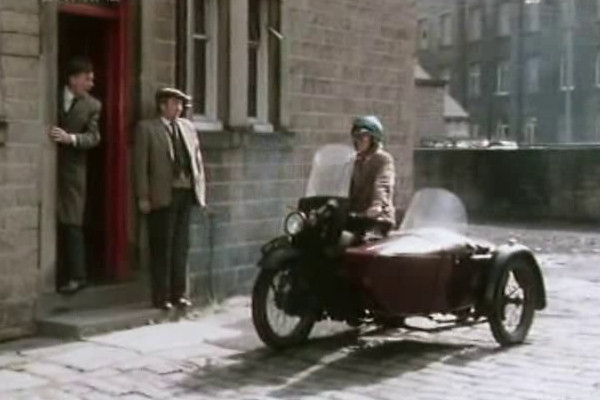
Perhaps the perfect anti-Last of the Summer Wine episode, as the entire set-up leads to a stunt crash ending, only for Compo's new motorbike to get a flat tire and it never taking place. In a later series, where the stunts were often the focal point of the episodes, this would almost be teasing the viewers, and it's refreshing that the predicted doesn't transpire.
As the final episode to feature Michael Bates, then it's notable that the relationship between Blamire and Compo is even more combative than usual during the series. Their deteriorating relationship is reflected upon in a final conversation between Compo and Clegg:
"I 'ate him."
"No you don't."
"Are you sure?"
"Well... pretty sure."
"That's funny, I thought I 'ated him."
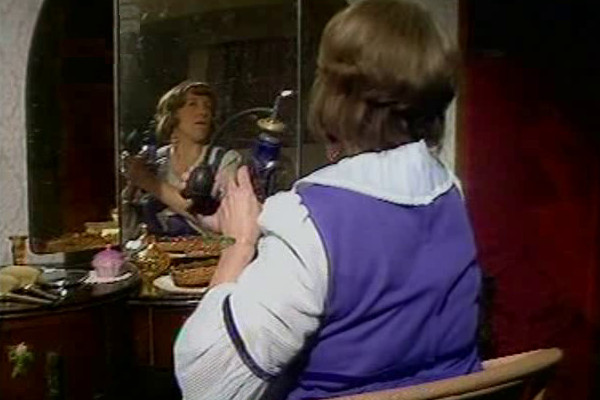
Essentially the plot of this one - Compo wants to sleep with Nora Batty behind her husband's back, but only as an affair, not as a relationship - should be repellent. And, indeed, Last of the Summer Wine's tradition of mining humour from extra marital affairs is a questionable one, as with the deeply tedious Howard in the later years of its run. However, there's something about the set up here that makes it less repulsive than perhaps it should be. It could be that Compo and Nora prove that they actually do want each other, and that her husband Wally doesn't really care either way. Still, it's an unfortunate misstep in many ways, despite producing an episode that engages so much it takes second place in this ranking.
Also of note is that this is the last appearance of the librarians (the series' working title being "The Library Mob"), two female staff members, one of whom wants the other to become a lesbian. What matters is not so much that the set-up is vaguely homophobic, but that the characters and the overplayed, "big" 1970s sitcom performances are chronically unfunny, just as were the original "having an affair" librarians of the previous series. The episode works far better when it focusses on why Clegg and Blamire need Compo, and that his apparent inanity is actually the binding force in their friendship. Roy Clarke's novels of the series featured somewhat Earthier language than the series generally did, and it's something of a shock to hear Compo being referred to as a "twat" (pronounced "twot") for the first of two instances in the series.
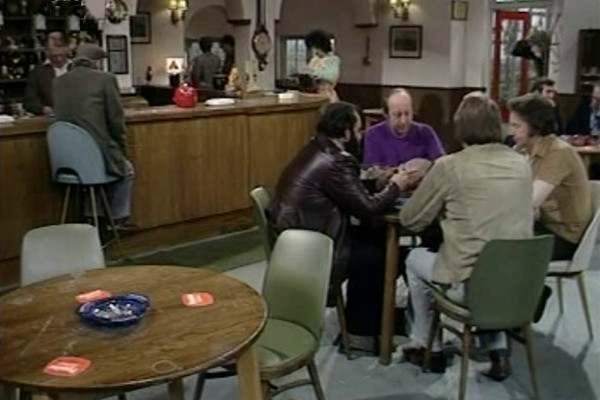
What's astonishing about the later years of Last of the Summer Wine - where series became longer and more frequent - is that characters not as widely associated with the series actually appeared in more episodes than even Compo and Foggy. Although Brian Wilde, the replacement for Michael Bates, is part of the most famous of the "trios", he actually appeared in less episodes than Stephen Lewis, Thora Hird or Jean Alexander. And although Compo was the most famous character of all, his run on the series (cut short by his death in 1999) actually lasted for less time than supporting characters like Ken Kitson as PC Cooper. In fact, with the quality control very much switched off in the later years of the programme, it's always shocking to realise that by the time the 80s ended, series hadn't even produced a third of its total episodes.
Although it's more than arguable the show should never have become an ensemble, it works here, with Roy Clarke populating a bar full of strangers who vie for screen time. Although the set-up can be criticised as more traditionally "sitcommy" than usual, the characters are drawn with a bit more detail and played more subtlely than other guest characters during the year. It's to Clarke's great credit that he's able to introduce such characters so quickly, and, by having the regulars know them via past, unseen meetings, make the viewers feel that they know them, too.
The ending takes a slightly darker turn in modern terms, as not only does someone suggest that Compo looks like Jimmy Saville, but they encourage drink driving to win a bet. Lastly, fans of basic hygiene might get a little freaked out by seeing the trio help the drunken "Tina" back into the bar, touching her arms, handbag and umbrella... seconds after they've all just finished urinating up a wall without washing their hands.